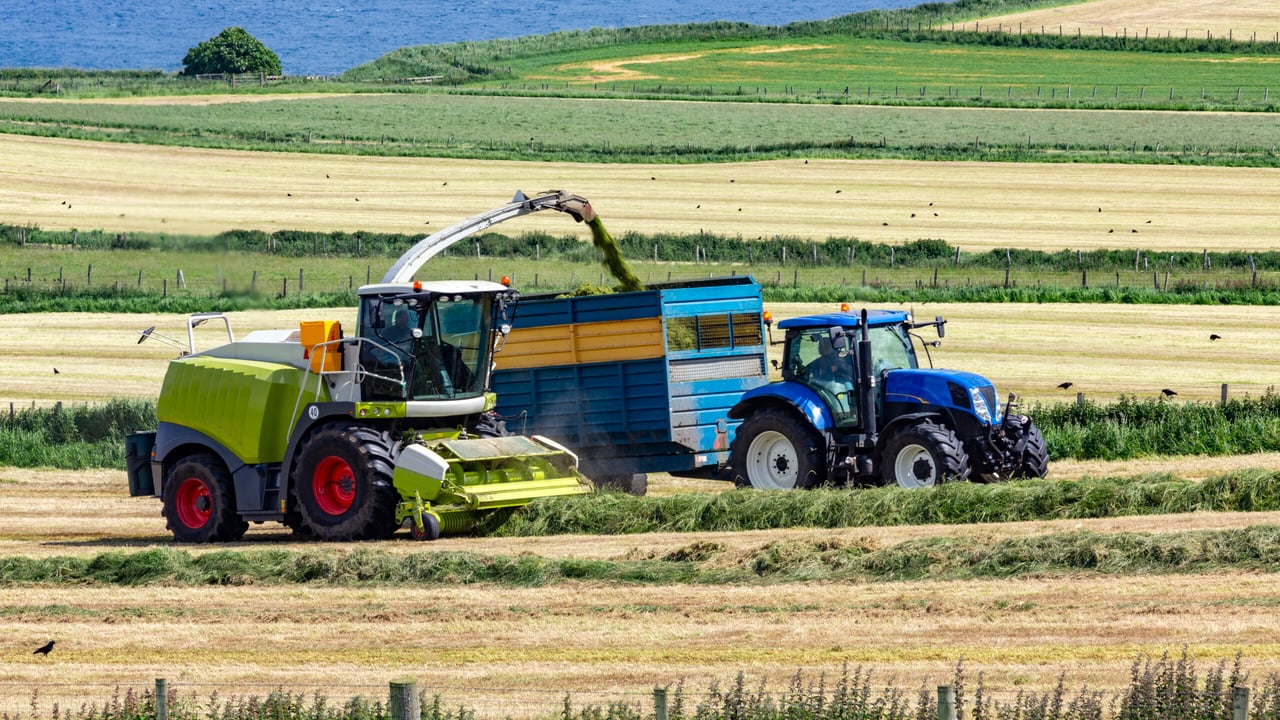FCI calls for 'mini-job' tax system for contractors in budget
The Association of Farm and Forestry Contractors in Ireland (FCI) has called for a short-term worker taxation system to be included in Budget 2026.
In its pre-budget submission, the association said such a measure would facilitate agricultural and forestry contractors and other rural employers who have short-term seasonal, and weather dictated skills requirements.
The system would allow these workers to deduct a standard rate of 30% in tax and social security contributions, in addition to accident insurance contributions of 1.3%, for seasonal and part-time workers who are already engaged in other employment.
John Hughes, national chair of the FCI, said that "a combination of high personal taxation levels and high employment levels are making it difficult to employ part-time or short-term seasonal employees in our sector".
The FCI chair believes that adopting the "German Mini-Job system" would allow the Irish contractors and the farming sector "to maintain and develop the necessary financial foundations for longer-term sustainability"
Hughes said that such a facility would make "seasonal part-time employment in the agricultural sector more attractive".
“This high-cost employment situation based around the current tax credits system is now leading to a significant shortage of seasonal employees on which the agricultural and forestry contractors and farming sectors depend to operate machines during the peak and highly seasonal work demands of the Irish farming year,” he said.
FCI estimates that of the 20,000 employees in the sector, in the region of 14,000 are part-time and seasonal employees.
“The number of available part-time employees is declining significantly as it is no longer financially attractive for seasonal employees to work in our sector due to high personal taxation issues.
“It is also no longer possible for employers in our sector to secure the necessary funds to make worthwhile payments to seasonal workers while striving to provide cost-effective and high technology machinery services to the Irish farming and food sector.
"There is an urgent requirement to put in place a personal taxation system that reflects the realities of the agricultural sector which is seasonal and highly weather dependent, and the German government has provided the solution with the Mini-Job system that we urgently need to adopt,” Hughes added.
Michael Moroney, FCI research director, visited Germany to researched the mini-job system in place there.
He said that the German tax system allows the employer (an agricultural or forestry contractor) to deduct a flat 31% tax on income from part-time employees through a system of mini-jobs and/or a short-term employment system.
The employees are registered on a central database.
“The German system allows small and seasonally based rural businesses, such as agricultural and forestry contractors and farmers, to employ seasonal workers in addition to that worker’s main employment, while allowing the employer to make a simple to administer flat-rate tax payment on their mini-job or seasonal employment," Moroney said.
He said the system is significantly easier to operate than the current Irish tax credits system where part-time employment can be very costly for the agricultural and forestry contractor and the farmer.
Moroney added that the German Mini-Job system allows part-time workers who operate machines in agriculture to earn up to €556 per month tax and social security contribution-free in 2025.
This equates to an hourly wage of €12.82 (the current statutory minimum wage) and an approximate monthly working time of 43 hours.
In the Irish situation, he said this would equate to earning up to €648 per month tax and social security contribution-free in 2025.
This is based on an Irish hourly wage of €13.50 per hour (the current statutory minimum wage) and an approximate monthly working time of 48 hours over a four month period.
The mini-job taxation proposal is just one of nine proposals put forward in the FCI pre-budget 2026 submission.
FCI chair John Hughes said that the sector, which the association said has an annual turnover of more than €1 billion, "must now be adequately supported and financed".
"Failure by this government to acknowledge this critical issue pertaining to the agricultural and forestry sectors will lead to business closures, and essential services required by the farming sector will become less available at critical seasonal times, impacting on future agricultural output and vital food exports," he said.





